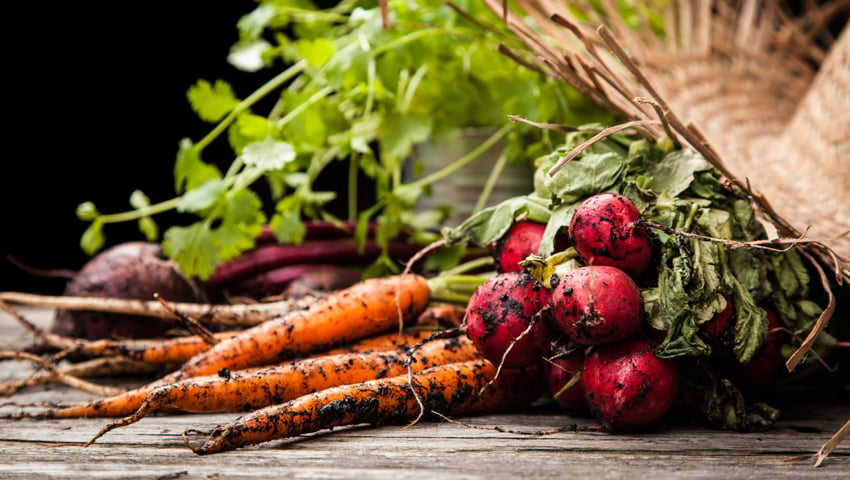This year’s Organic Trade Conference had an upbeat message for the sector as it revealed the sector is now outperforming non-organic as the food and drink industry recovers from the impacts of the cost-of-living crisis.
A year on from launching ‘Organic For All’ – an ambitious new approach for scaling organic production and consumption in the UK – Soil Association Certification was able to report that the organic market is coming out of the cost-of-living crisis with a renewed vigour and a shared determination to meet the challenges and opportunities for more rapid growth.
The event last week heard that latest market data for organic food and drink shows strong growth both in value and unit sales, with sales value increasing 6.4 per cent in the year up to August, compared to 5.4 per cent growth for non-organic.
Soil Association Certification Commercial Director, Alex Cullen, said, “It has been a fantastic year of progress towards a shared vision for the future of organic. There have been some tough times and challenges remain, but it is great to see the sector bouncing back from the impacts of the cost-of-living crisis as shoppers seek the wellness and sustainability credentials that organic provides.
“It has been a demonstration of the power of collaboration and the energy of the sector with significant progress to understand the barriers and opportunities for growth and what we need to do to unleash the potential of organic and meet the booming demand for it. We are celebrating the inspirational energy, innovation and tenacity of all of those working in the sector from farm to fork.
“And with a newly elected government, there’s cause for optimism on how we get more organic into the hands and mouths of people across the country. But it is critical that we learn the clear lessons from Europe on how we can achieve scale for organic food and farming at pace to realise the benefits for health, nature and the environment.”
Mike Watkins, Head of Retailer & Business Insight, NielsenIQ, shared key data insights on the health of the organic market and sales performance in the supermarkets, and highlighted the key trends which reveal the motivations of shoppers looking for more healthy and sustainable choices.
Today consumers are becoming accustomed to the higher cost of living, with 29 per cent saying that it is their biggest concern compared with 57 per cent two years ago, and shifting instead to other areas like health and wellness which is now at 28 per cent after being just 11 per cent in November 2022. And now 69 per cent of shoppers say they actively look for sustainable/eco certifications or logos when buying food and drink.
Watkins said, “Shoppers are increasingly aware of the need to balance the future demands of a growing population, as well as their own health, with a change to their diets. But there is also opportunity to inform and educate about the need for changes in how we produce food and in the supporting the supply chain as part of helping UK food security. Organic is part of this journey.”
Scotland and EU lead the way
The conference reflected on the sharp contrast between the UK government and the EU where there are targets to increase organic land and organic is recognised as a key sustainable solution.
Just last month the President of the European Commission, Ursula von der Leyen, was advised that organic farming is the only regulated sustainable system that already delivers environmental and climate protection, in a report that is set to shape the European Commission’s Vision for Agriculture and Food. The report said organic is a prime example of a food production system that reconciles nature protection and farmers’ income.
This message was reinforced by guest speaker – Michaël Wilde, Founder and Bio Ambassador for The Organic Embassy in the Netherlands, who shared his insights on the rapid growth of the Dutch organic market. He described the Dutch government’s Organic Action Plan, the strategies of the major retailers, and the establishment of organic cities and regions.
Wilde said, “Our experience has been incredibly positive driven by a shared understanding for the need to address the environmental and health crisis across government and supply chains. Clearly there are still many challenges to overcome, not least the increasing polarisation of the intensive food sector and combined organic and regenerative sectors, but I am optimistic about the future and the lead we are taking in Europe.
“The UK has some fantastic organic farmers, processors and products. I am inspired by the level of innovation and the commitment to organic principles despite the apparent reluctance of the previous government to create the necessary conditions to allow organic to flourish and reach its true potential.”
